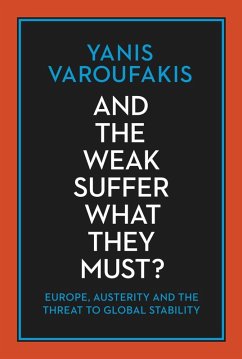
What Justices Want (eBook, ePUB)
Goals and Personality on the U.S. Supreme Court
Versandkostenfrei!
Sofort per Download lieferbar
15,95 €
inkl. MwSt.
Weitere Ausgaben:

PAYBACK Punkte
8 °P sammeln!
The most sophisticated theories of judicial behavior depict judges as rational actors who strategically pursue multiple goals when making decisions. However, these accounts tend to disregard the possibility that judges have heterogeneous goal preferences - that is, that different judges want different things. Integrating insights from personality psychology and economics, this book proposes a new theory of judicial behavior in which judges strategically pursue multiple goals, but their personality traits determine the relative importance of those goals. This theory is tested by analyzing the b...
The most sophisticated theories of judicial behavior depict judges as rational actors who strategically pursue multiple goals when making decisions. However, these accounts tend to disregard the possibility that judges have heterogeneous goal preferences - that is, that different judges want different things. Integrating insights from personality psychology and economics, this book proposes a new theory of judicial behavior in which judges strategically pursue multiple goals, but their personality traits determine the relative importance of those goals. This theory is tested by analyzing the behavior of justices who served on the US Supreme Court between 1946 and 2015. Using recent advances in text-based personality measurement, Hall evaluates the influence of the 'big five' personality traits on the justices' behavior during each stage of the Court's decision-making process. What Justices Want shows that personality traits directly affect the justices' choices and moderate the influence of goal-related situational factors on justices' behavior.
Dieser Download kann aus rechtlichen Gründen nur mit Rechnungsadresse in A, B, BG, CY, CZ, D, DK, EW, E, FIN, F, GR, HR, H, IRL, I, LT, L, LR, M, NL, PL, P, R, S, SLO, SK ausgeliefert werden.













